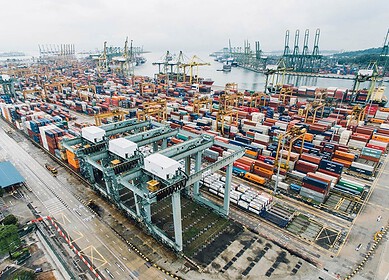Friday’s Insider: Impact of the Israeli-Iranian conflict on the global fertilizer market

The current Israeli-Iranian conflict has the potential to send ripples through the global market, including the crucial supply chains of mineral fertilizers. Iran has launched over 100 ballistic missiles at Israel, raising questions about how Israel might respond and what the broader consequences could be, particularly for global fertilizer supplies.
Analyzing the situation
At present, Iran’s missile strikes on Israel have grabbed the attention of not only political and military analysts but also global market watchers. The most likely scenario involves Israel retaliating against Iran, potentially targeting critical infrastructure such as oil production facilities, chemical plants, and ports. If such infrastructure is disrupted, it could have a profound impact on the Arab (Persian) Gulf region, which is a key player in the global supply of fertilizers, particularly urea, sulfur, and phosphate-based products.
The disruption of key export routes, especially through the Gulf, would likely cause a significant reduction in supply, tightening the market. This could drive prices upward in the short term, creating a ripple effect that would be felt across industries dependent on fertilizers, including agriculture. However, despite the current volatility, such extreme retaliation from Israel seems unlikely to me.
Retaliation and sanctions: a broader impact?
If Israel were to strike back, the resulting regional instability could prompt disruptions not only in fertilizer exports but also in oil prices, further complicating global supply chains. Moreover, the conflict may trigger additional international sanctions against Iran. While it’s hard to imagine what further sanctions could be imposed, it’s possible that trading operations involving fertilizers of “suspicious” origins or those transiting through Iran could be scrutinized more closely, further straining supply chains.
Freight markets are already reflecting increased uncertainty, with bunker prices rising by around 4% following the attacks. Shipping companies, vital for moving fertilizers globally, are likely to keep a close watch on developments. Any further escalation would almost certainly lead to higher freight rates and delays in shipments, adding to the overall cost of fertilizers.
Short-term volatility or long-term shift?
Despite the initial shockwave, my personal view is that the market may correct itself once the immediate geopolitical risks are contained. While this current conflict has led to a bullish spike in fertilizer prices, it’s important to ask whether this surge is sustainable. Historically, short-term price jumps caused by geopolitical events tend to be fleeting, as the market stabilizes after the initial shock.
For a lasting impact on the fertilizer market, we would need to see more profound, structural shifts. These could include long-term disruptions in production capacity, significant changes in export markets, or enduring supply chain breakdowns. In the absence of such factors, prices are likely to stabilize in the medium term.
The Israeli-Iranian conflict has certainly introduced new uncertainty into the global fertilizer market. While short-term price volatility is expected due to disruptions in supply routes and rising freight costs, the long-term impact will depend on whether the conflict leads to significant structural changes in the market. As things stand, I believe the current bullish trend may prove temporary, and prices may settle down once the immediate risks subside.
In any case, the situation warrants close attention as it evolves, and its ultimate impact on the fertilizer market remains uncertain. Hopefully, cooler heads will prevail, and the conflict will not escalate further, minimizing its effect on global supply chains.
————
About the Author of “Friday’s Insider”: Ilya Motorygin is the co-founder of GG-Trading and brings 30 years of experience to the fertilizer industry. Renowned for his comprehensive problem-solving skills, Ilya expertly manages deals from inception to completion, overseeing aspects such as financing, supply chains, and logistics.
Enjoyed this story?
Every Monday, our subscribers get their hands on a digest of the most trending agriculture news. You can join them too!












Discussion0 comments